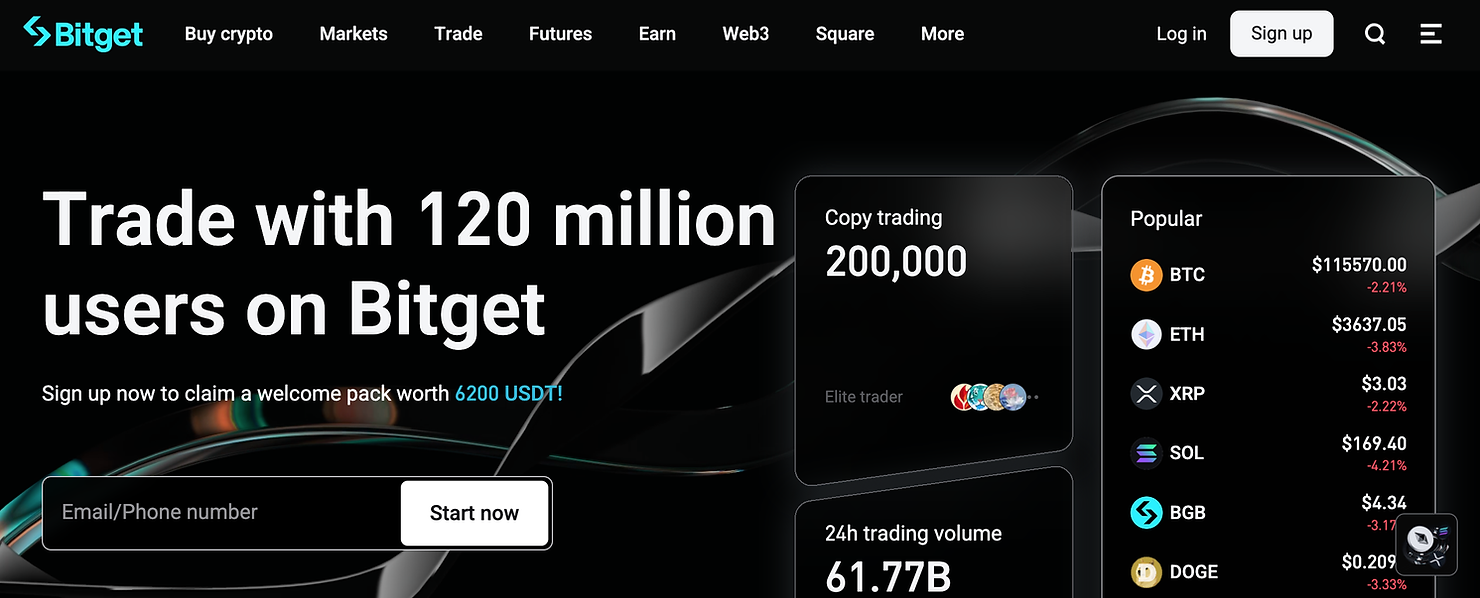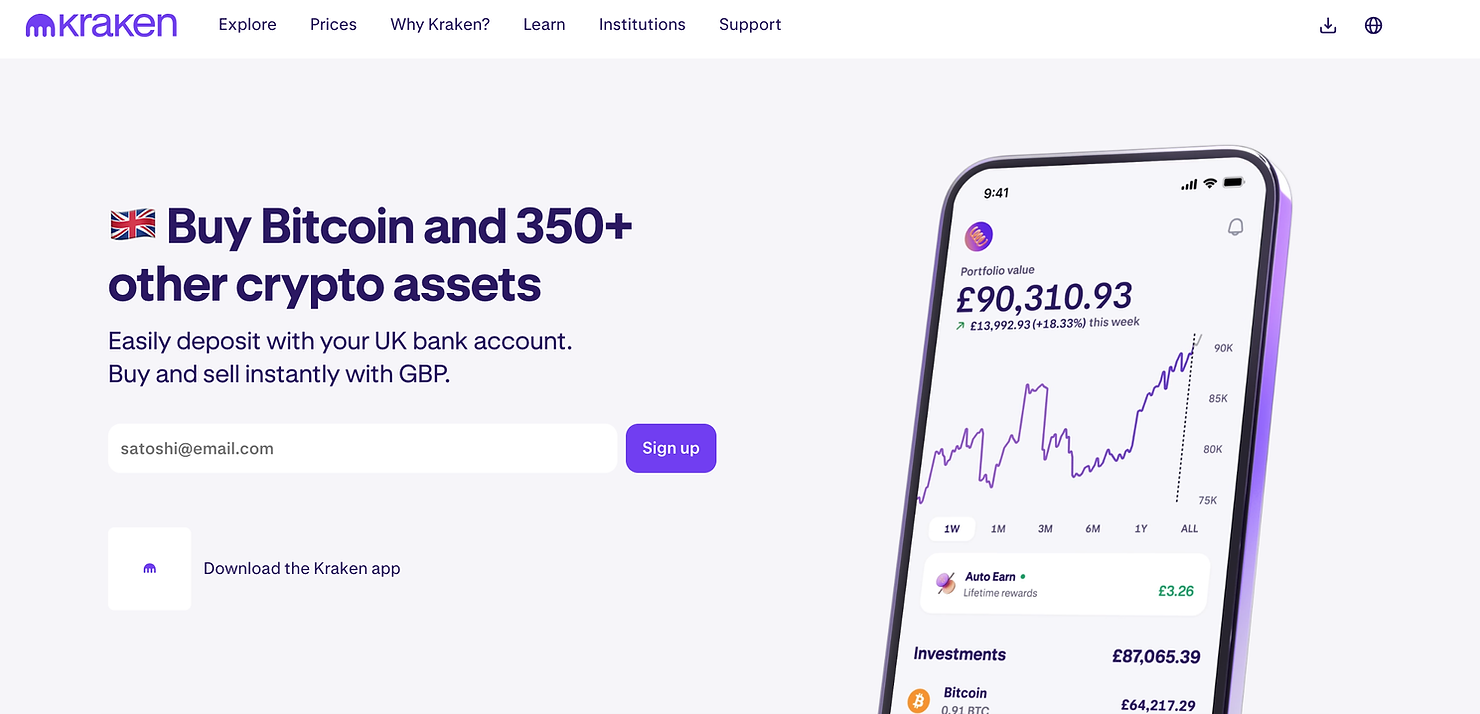Introduction
The US cryptocurrency landscape is more dynamic than ever in 2025. For Bitcoin traders, selecting the right exchange is paramount to success. This article cuts through the noise to present the definitive guide to the seven best crypto exchanges in the United States for Bitcoin trading. We have meticulously evaluated each platform based on critical metrics such as trading volume, market liquidity, fee transparency, and security reputation. Each exchange on our list excels at providing tight spreads, efficient order execution, and a seamless user experience. Explore our curated selection to discover the ideal platform that aligns with your Bitcoin trading strategies and financial goals.
Understanding Cryptocurrency Exchange Operations
Cryptocurrency exchanges are the digital marketplaces that power the crypto economy, facilitating the buying, selling, and trading of digital assets. They act as intermediaries, connecting buyers and sellers in a seamless environment where users can exchange cryptocurrencies for other digital currencies or traditional fiat money (like USD, EUR, etc.).
At their core, exchanges function as sophisticated matchmaking systems. When a user wishes to trade, they first register an account and deposit funds—either fiat currency or existing cryptocurrencies—into their secure exchange wallet. More experienced investors often opt for “pro” or “advanced” accounts that offer lower fees and more sophisticated trading tools.
Once funded, a user can place orders on the exchange. These orders are compiled into the exchange’s order book, a real-time, transparent ledger of all pending buy and sell requests.
- Buy orders (bids) specify the amount of a cryptocurrency a user wants to purchase and the maximum price they are willing to pay.
- Sell orders (asks) specify the amount a user wants to sell and the minimum price they are willing to accept.
When a buy order’s price matches a sell order’s price, the exchange’s engine automatically executes the trade. The cryptocurrency is transferred to the buyer, and the corresponding payment is sent to the seller. Exchanges generate revenue by charging fees for these services, which can include trading fees (a percentage of the trade value), withdrawal fees, and sometimes deposit fees.
Many leading exchanges also offer advanced services such as margin trading, futures contracts, and access to initial coin offerings (ICOs), each with its own fee structure. Given the value of the assets they handle, security is a paramount concern, as these platforms are constant targets for hacking and fraud.
Potential Risks Associated with Crypto Exchanges
Engaging with cryptocurrency exchanges, whether centralized (CEXs) or decentralized (DEXs), inherently involves risk. A clear understanding of these risks is crucial for any trader to make informed decisions and safeguard their assets.
Security Vulnerabilities
- Hacking and Theft: As centralized repositories of valuable assets, exchanges are prime targets for cyberattacks. A successful breach can result in the catastrophic loss of user funds.
- Phishing Attacks: Scammers create fraudulent websites and emails that mimic legitimate exchanges to steal user login credentials and drain their accounts.
Operational Risks
- Technical Failures: System glitches, server downtime, or software bugs can prevent the execution of trades, leading to significant losses, especially during periods of high market volatility.
- Liquidity Issues: Smaller or less-established exchanges may suffer from low liquidity, making it difficult to fill large orders without causing substantial price slippage.
Regulatory and Legal Risks
- Evolving Regulations: The legal framework for cryptocurrencies in the US is constantly evolving. Sudden regulatory changes can impact an exchange’s operations, potentially leading to service restrictions or shutdowns in certain jurisdictions.
- Legal Scrutiny: Exchanges facing lawsuits or regulatory enforcement actions may be forced to halt operations or freeze user assets, preventing access to funds.
Market Risks
- Price Volatility: The cryptocurrency market is famously volatile. Sudden and sharp price movements can lead to substantial losses, particularly for traders using leverage.
- Market Manipulation: On some platforms, bad actors may engage in “pump-and-dump” schemes or other manipulative practices that can harm unsuspecting traders.
Counterparty Risks
- Custody Risk (CEXs): When you hold funds on a centralized exchange, you are entrusting them to a third party. If the exchange becomes insolvent or acts maliciously, your funds could be lost. This is often summarized by the phrase, “not your keys, not your coins.”
- Smart Contract Vulnerabilities (DEXs): Decentralized exchanges operate on smart contracts. Flaws or bugs in the underlying code can be exploited by hackers, leading to a loss of funds.
Personal Security Risks
- Loss of Access: Forgetting a password or losing your two-factor authentication (2FA) device can result in the permanent loss of access to your account and the funds within it.
- Privacy Concerns: To comply with regulations, CEXs require personal information (KYC). A data breach could expose this sensitive information, leading to identity theft.
Strategies to Mitigate These Risks
- Choose reputable exchanges with a proven security track record and insurance for digital assets.
- Enable two-factor authentication (2FA) on all accounts, preferably using an authenticator app or hardware key.
- Use a hardware wallet to store the majority of your crypto assets offline, only keeping what you need for active trading on the exchange.
- Diversify your holdings across multiple exchanges to avoid a single point of failure.
- Educate yourself on recognizing phishing attempts and common trading scams.
- Withdraw funds that are not actively being used for trading to your personal secure wallet.
Selecting the Right Cryptocurrency Exchange
Choosing a cryptocurrency exchange is a critical decision. Consider these key factors to find a platform that perfectly suits your needs:
- Security Measures: Prioritize exchanges that offer robust security features like 2FA, cold storage for the majority of user funds, platform-wide encryption, and regular third-party security audits.
- Fee Structure: Carefully examine the fees for trading (maker/taker fees), deposits, and withdrawals. Look for a transparent and competitive fee schedule that aligns with your trading frequency and volume.
- Supported Cryptocurrencies: Ensure the exchange lists Bitcoin and any other digital assets you are interested in. Some platforms specialize in major coins, while others offer a vast selection of altcoins.
- User Interface (UI) and Experience (UX): A clean, intuitive, and reliable interface is crucial. A good exchange offers a simple experience for beginners and advanced charting tools for seasoned professionals.
- Liquidity: High liquidity, indicated by high trading volume, ensures that you can execute trades quickly and at prices close to the market rate with minimal slippage.
- Regulatory Compliance: Select an exchange that is fully compliant with US federal and state regulations, including registration with FinCEN and adherence to KYC/AML laws. This is a strong indicator of reliability.
- Customer Support: Effective and responsive customer support is vital when issues arise. Look for exchanges that offer multiple support channels, such as live chat, email, and phone support.
- Additional Features: If your strategy involves more than simple spot trading, consider exchanges that offer features like staking, margin trading, futures, or lending services.
Best USA Crypto Exchanges for 2025
Coinbase

Coinbase stands as the most recognizable and trusted on-ramp for cryptocurrency in the United States. Its primary strength lies in an incredibly user-friendly interface that makes buying, selling, and managing Bitcoin straightforward for absolute beginners. Renowned for its stringent security protocols and full regulatory compliance, Coinbase offers a secure environment for new users. While its standard trading fees are higher than some competitors, its high liquidity ensures reliable trade execution. For those who progress, Coinbase Advanced offers a more sophisticated trading experience with lower fees and advanced charting tools.
Uphold

Uphold distinguishes itself with a unique “Anything-to-Anything” trading engine. This allows users to trade directly between different asset classes—such as from Bitcoin (BTC) to Tesla stock (TSLA), from Ethereum (ETH) to physical gold (XAU), or from XRP to British Pounds (GBP)—without first converting to USD. This feature provides unparalleled flexibility for diversifying portfolios and executing complex trading strategies. Uphold’s transparent pricing model, which clearly displays the bid-ask spread before you trade, makes it a strong contender for those seeking cost-effective and versatile trading.
eToro

eToro has carved out a niche as a leading social investing platform, making it an excellent choice for those who want to learn from the community. Its standout feature, CopyTrader, allows users to automatically replicate the trades of experienced and profitable Bitcoin traders. This provides a powerful way for beginners to navigate the market while learning. eToro also excels in user education, offering a wealth of tutorials and market analysis. Its simple interface for direct Bitcoin purchases, combined with the power of social trading, creates a unique and supportive environment.
BYDFi

Despite being a newer player, BYDFi has quickly established itself as a powerful platform for serious traders. Its strength lies in a comprehensive suite of advanced trading tools. BYDFi offers over 400 trading pairs, from simple spot trading to complex perpetual contracts with leverage up to 100x. Its combination of a clean user interface, robust security, and diverse product offerings makes it highly competitive. For US traders looking to move beyond basic buying and selling into more sophisticated derivatives trading, BYDFi is an excellent choice.
Bitget

Bitget is a formidable choice for traders seeking a comprehensive, all-in-one platform. It combines a powerful exchange with a native Web3 wallet, creating a seamless ecosystem for trading, holding, and interacting with the decentralized web. Bitget emphasizes security through multiple protocols and is licensed to operate in numerous countries, including Canada and parts of Europe, underscoring its commitment to regulatory compliance. With a competitive fee structure, a large user base ensuring high liquidity, and extensive trading options, Bitget is a top-tier platform for US users looking to trade Bitcoin within a broader crypto ecosystem.
Kraken

Kraken has earned a stellar reputation as the “trader’s exchange,” and for good reason. Its Kraken Pro interface offers some of the lowest fees in the industry, coupled with professional-grade charting tools and a wide array of order types (market, limit, stop-loss, etc.). This makes it the preferred platform for experienced traders who need to execute sophisticated strategies with precision. Kraken also supports margin and futures trading, providing the flexibility needed to capitalize on any market condition. Its unwavering focus on security and transparency makes it one of the most trusted names in crypto.
Note: Kraken’s services are not available to residents of New York or Washington state.
Conclusion
Successfully navigating the world of Bitcoin trading in 2025 hinges on selecting a platform that aligns with your specific needs. The best USA crypto exchanges offer a blend of low-spread trading, deep market liquidity, and transparent fees. These elements are crucial for optimizing your strategy, minimizing costs, and executing trades efficiently in a volatile market.
When making your choice, prioritize platforms with a strong security reputation, high trading volume, and a user experience tailored to your skill level. By doing so, you can engage in low-cost, effective trading on a platform that provides a secure and seamless environment for your investments.
Frequently Asked Questions
What is the best way to buy crypto in the U.S.?
For most users, the best way is to use a reputable and regulated cryptocurrency exchange like Coinbase or Kraken. These platforms offer a secure and straightforward purchasing process with various payment methods, including bank transfers (ACH), wire transfers, and debit cards, providing easy access to the crypto market.
How can I get USDT for free?
While there’s no such thing as a free lunch, you can sometimes earn USDT (Tether) through promotional activities. These can include exchange-sponsored airdrops, sign-up bonuses, or referral programs. Always be extremely cautious of offers that seem too good to be true, as they are often scams.
Is USDT risk-free?
No, USDT is not risk-free. Although it is a stablecoin designed to maintain a 1:1 peg to the US dollar, it carries risks. These include counterparty risk (trust in the issuer, Tether, to maintain its reserves) and regulatory risk. While generally stable, all investments carry some level of risk.
Are crypto exchanges legal in the U.S.?
Yes, cryptocurrency exchanges are legal at the federal level in the United States. They are regulated as Money Services Businesses (MSBs) and must register with the Financial Crimes Enforcement Network (FinCEN). They are also required to comply with Anti-Money Laundering (AML) and Know Your Customer (KYC) regulations. However, state-level licensing requirements can vary, which is why some exchanges are not available in every state.
